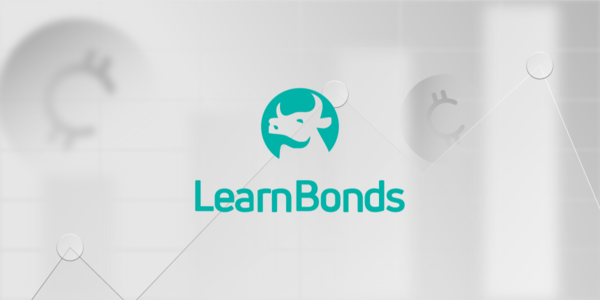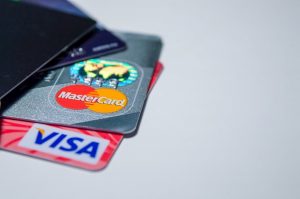Best Secured Loan Providers & Sites in 2021
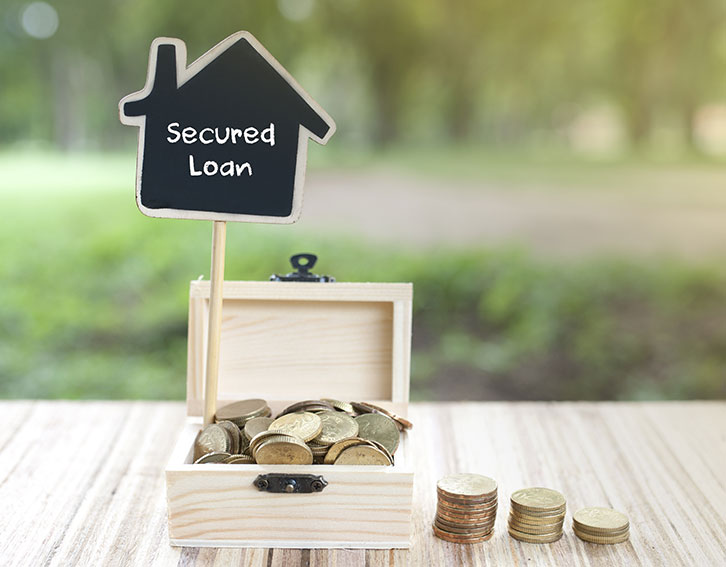
The UK loan arena typically consists of two main loan types – secured loans and unsecured loans. Regarding the latter, this where you are able to borrow the funds without needing to put any assets up as collateral. As such, there is no risk of you losing your assets in the event that you default on the loan. On the contrary, a secured loan requires just that – you’ll be required to put an asset up as security in order to obtain the money. As such, you face the very real risk of losing the security if you fall behind on your repayments.
However, if you’re currently in a position where your credit profile is less than ideal then you might have no other option but to obtain a secured loan, as lenders require this in order to offset the higher risks. With that being said, we have created the ultimate guide to the Best Secured Loans of 2021. Within it, we’ll tell you everything that you need to know – such as what a secured loan is, how it works, what you need to look out for, and what risks you face by putting an asset up as security.
-
-
Ocean Finance
Our Rating
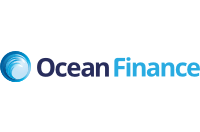
- Borrow up to £100,000
- Get a quote without affecting your credit score
- Get a secured loan at rates as low as 2.6% APRC
- Check your eligibility in under 5 minutes
 Note: In some cases – such as a homeowner loan, secured loans can actually offer a more favorable rate of interest in comparison to an unsecured loan. This is because the lender has the safety cushion of your security in the event that you default.
Note: In some cases – such as a homeowner loan, secured loans can actually offer a more favorable rate of interest in comparison to an unsecured loan. This is because the lender has the safety cushion of your security in the event that you default.Pros and cons of secured loans
The Pros
- Excellent source of funding if your credit profile is less than ideal
- Great range of security options such as a car or house
- Comparison sites allow you to find the best secured loan deals
- Secured loans typically allow you to borrow larger amounts
- Some secured loans offer more favourable APR rates than unsecured loans
The Cons
- You stand the risk of losing your collateral if you default on the loan
Reviewer’s choice of best 3 secured loan providers
Reviewers Choice
Ocean Finance RatingAvailable Loan Amount£10,000 - £100,000Available Term Length25 yearsRepresentative APR2.6% to 26.3% APRCCar Cash Point
RatingAvailable Loan Amount£10,000 - £100,000Available Term Length25 yearsRepresentative APR2.6% to 26.3% APRCCar Cash Point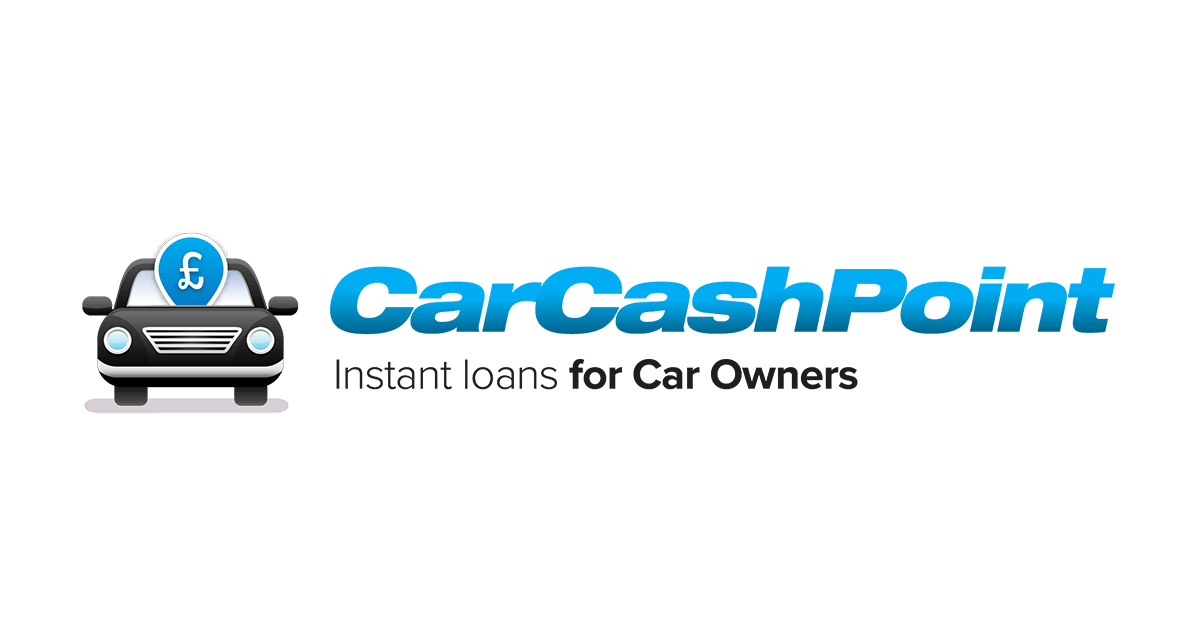 RatingAvailable Loan Amount£500 - £100,000Available Term Length5 YearsRepresentative APR230.70% APRShawbrook Bank
RatingAvailable Loan Amount£500 - £100,000Available Term Length5 YearsRepresentative APR230.70% APRShawbrook Bank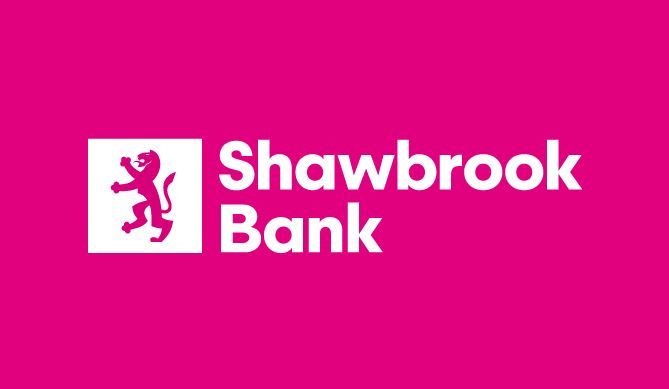 RatingAvailable Loan Amount£10,000 - £500,000Available Term Length25 yearsRepresentative APR4.1% APRC
RatingAvailable Loan Amount£10,000 - £500,000Available Term Length25 yearsRepresentative APR4.1% APRCBest 3 secured loan providers
If you have read our guide on secured loans up to this point, then you should now have a good understanding of what’s involved. Most importantly, it is hoped that you have a firm grasp of the underlying risks of taking out a secured loan – especially when it comes to default.
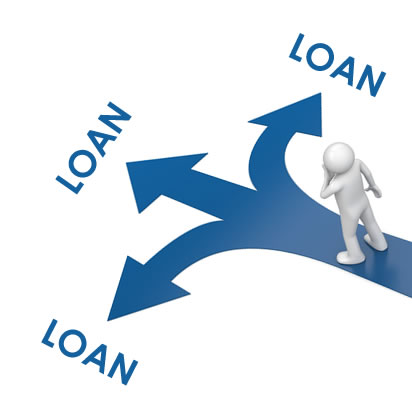
Nevertheless, if you believe that you have the financial means to meet your loan repayments each and every month and thus – you want to proceed with a secured loan application, we have listed the top three providers below. Before we do, be sure to look at the main criteria we use when ascertaining which lenders to recommend.
Criteria used to rank the best secured loan providers
- Lenders with the most competitive interest rates
- How much the lender is able to offer
- What credit score you need to obtain the personal loan
- What assets you are required to put up as a security
- What the late payment and missed payment process is
1. Ocean Finance – Best if you're looking to secure your home against the loan
If you're looking to obtain a loan of significant size, then it's likely that you will need to put your home up as security.
In this sense, you will be obtaining a homeowner loan. While the process of securing your home against the loan agreement is fraught with risk, a number of other benefits remain constant - such as higher loan amounts, longer loan terms, and a lower rate of interest.
With that being said, you might be best to check out the Ocean Finance platform. The website is not a direct lender, as they will instead match you with the best secured loan providers in the market. They do this by asking you a range of questions, such as the size and term of the loan required, the value of your home, and your current and historical relationship with credit.
Once you've completed the application process, Ocean Finance will then present a list of the best deals in the market - based on your individual profile. In terms of the fundamentals, you can apply for a secured loan from £10,000, up to a maximum of £100,000.
Moreover, the initial application phase is based on a soft credit check, so you have nothing to lose by finding out what rates you are able to get.
Our Rating
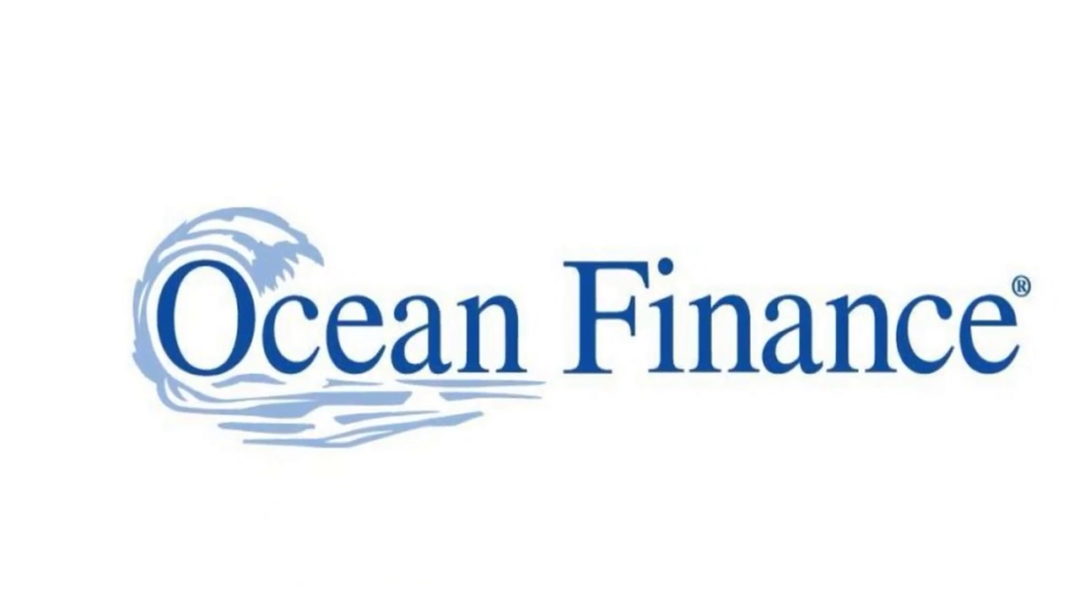
- Gives borrowers secured loans of between £10,000 and £100,000
- Performs a soft-credit enquiry - applying won't hurt your credit score
- Suitable for credit profiles of all sizes
- Your home is the loan security
- Ocean Finance is not a direct lender - more of a comparison-style website
2. Car Cash Point – Best if you're looking to secure your car against the loan
Car Cash Point is a UK lender that specializes in auto equity loans. Commonly referred to as a 'logbook loan', you will be putting your car up as security in order to obtain the loan funds.
Moreover, the amount that you will be able to borrow will depend on the current market value of your vehicle. In order to get started with Car Cash Point, you will need to enter details about your car, such as the make, model, and registration number. Once the system has ascertained the value of the car, it will then advise you how much you can borrow against it. Take note - Car Cash Point list a representative rate of 230.70% APR, which is very expensive.
However, this is often the case with auto equity loans anyway, as the value of your vehicle will, of course, depreciate over time. You will be able to borrow the funds from just 1 year, up to a maximum of 5 years. You will also have the option of making your repayments on a weekly basis, or month-by-month. Finally, you stand the chance of having your car repossessed if you fall behind on your repayments, so do bear this in mind.
Our Rating
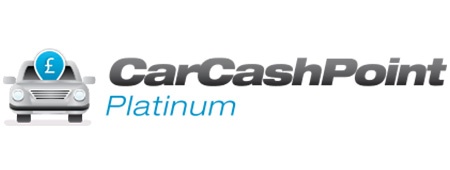
- Loan terms start from 1 year, up to a maximum of 5 years
- Does not conduct credit checks
- The size of the loan will be based on the value of your car
- Penalizes prepayments
3. Shawbrook Bank – Best for high loan sizes and low APR rates
If you are currently in possession of a good or excellent credit profile with no history of missed payments or defaults, then we would suggest checking out Shawbrook Bank. You might not have heard of the lender as the institution was only launched in 2011, however, it is offering some excellent deals on secured homeowner loans.
First and foremost, Shawbrook Bank is able to facilitate secured loans from just £10,000, all the way up to a whopping £500,000. The lender will consider loan applications at up to 65% LTV - meaning that a £300,000 property could yield a loan size of £195,000. The specific interest rate that you are able to get will, of course, depend on your current financial standing, however, the headline rate being offered by Shawbrook Bank is currently 4.1% APRC.
On top of super-competitive interest rates and high loan sizes, the lender also offers excellent flexibility when it comes to loan terms. You can borrow the money from just 3 years, up to a maximum of 25 years. Finally, you can complete the vast majority of the secured loan application via the Shawbrook Bank website.
Our Rating
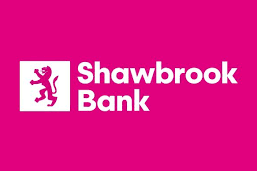
- Get secured loans of between £10,000 and £500,000
- Enjoy extended loan terms of between 3 years and 25 years
- Straightforward loan application process
- Maintains a low maximum LTV of 65%
- One may consider their 4.1% APR relatively high
What is a secured loan?
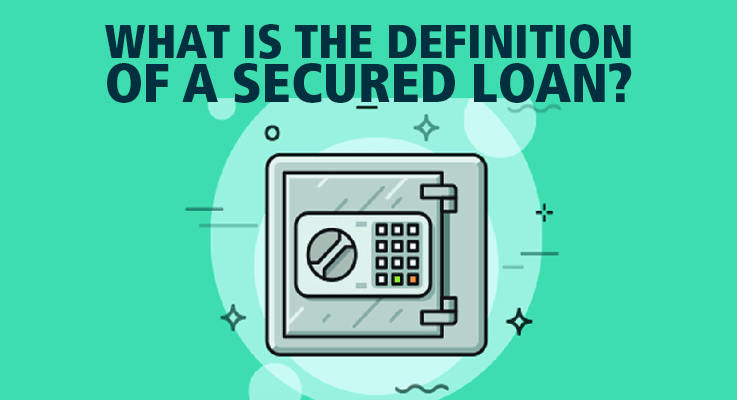
In its most basic form, a secured loan is a type of loan that requires you to put an asset up as security in order to obtain the loan. In the vast majority of cases, this will either be a car or property that you own. As we will discuss in more detail further down, secured loans can be tailored to a range of financing needs – such as borrowing a larger amount of money, borrowing funds with a less than ideal credit score, or obtaining a cheaper rate of interest.
While these benefits make secured loans somewhat attractive, it is crucial to remember that you face the risk of having your security repossessed if you fall behind on your payments. While the repossession process is no easy feat for lenders, they will not hesitate to do this – especially considering the potentially large size of the funds owed.
In terms of the specifics, the actual loan process is very similar to that of a conventional unsecured loan, insofar that you will likely borrow a fixed amount, at a fixed rate of interest. As such, you will be making your repayments to the same amount each month, on the same date of each month.
Types of secured loans
The term secured loan is a somewhat broad one, not least because it can cover a wide range of loan types. The specific loan that you opt for will, of course, depend on your individual circumstances – such as how much you need to borrow, and what assets you have to secure against the loan.
With that being said, we’ve listed the most common types of secured loans below.
-
Homeowner Loans
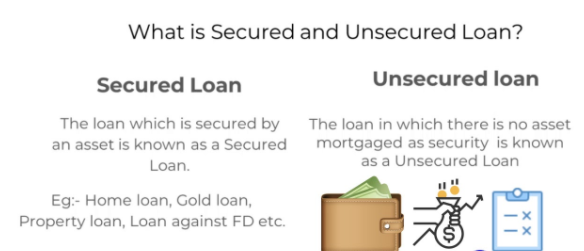 A homeowner loan is one of the most common secured loan types in the market. In a nutshell, homeowner loans are suitable for credit profiles of all shapes and sizes, as lenders know that they have the safety net of your property. In order to qualify for a homeowner loan, you will need to own the property that you are putting up as collateral. One of the overarching benefits of going the homeowner loan route is that you can often borrow a significant amount of money. The amount that lenders will be willing to lend you will be based on two key factors – the value of your home and the amount of equity you have in the home.Note: Due to the sheer size of homeowner loans, it is likely that your interest rate will be variable – much like in the case of a conventional mortgage agreement. This is because lenders often base their rates of the Bank of England interest rate, which in itself can change at any time.
A homeowner loan is one of the most common secured loan types in the market. In a nutshell, homeowner loans are suitable for credit profiles of all shapes and sizes, as lenders know that they have the safety net of your property. In order to qualify for a homeowner loan, you will need to own the property that you are putting up as collateral. One of the overarching benefits of going the homeowner loan route is that you can often borrow a significant amount of money. The amount that lenders will be willing to lend you will be based on two key factors – the value of your home and the amount of equity you have in the home.Note: Due to the sheer size of homeowner loans, it is likely that your interest rate will be variable – much like in the case of a conventional mortgage agreement. This is because lenders often base their rates of the Bank of England interest rate, which in itself can change at any time.First and foremost, the lender will state an LTV (Loan to Value) ratio that they can facilitate, which is a percentage of your home’s value. For example, if your home is worth £200,000 and the LTV is 80%, then this means that you would be able to borrow up to £160,000. Secondly, the lender would then take your equity into account. For example, if you still had £50,000 left to pay on your mortgage, then you would only be able to borrow £110,000, as opposed to the full £160,000.
-
Auto Equity Loans
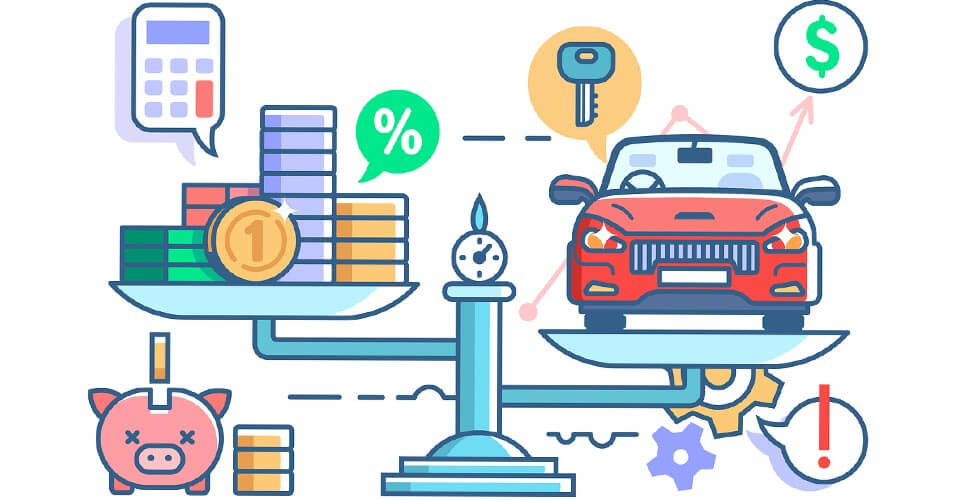
Not to be confused with a conventional car financing loan, an auto equity loan operates in a similar nature to that of a homeowner loan, albeit, you will use your car or motorbike as collateral instead of your property. Auto equity loans are slightly different from homeowner loans for a couple of key reasons. First and foremost, the value of your vehicle is going to be significantly lower than that of your property, so the amount that you can borrow is going to be much lower.
Furthermore, auto equity loans are typically obtained for short-term financing needs. In fact, you will likely take the loan agreement out for no more than 48 months. The overarching reason for this is that unlike a home – which typically increases in value over time, vehicles do the opposite – they depreciate in value. As such, lenders prefer to keep auto equity loans short, knowing that the valuation of your car will only remain valid for a short period of time.
-
Personal Loans
Personal loans are without a doubt the most common loan type in the UK. In the vast majority of cases, personal loans are unsecured, meaning that you can borrow the funds without being asked to put any collateral up as security. However, if your credit profile is somewhat damaged, then you might have no option but to put an asset up as security to get the personal loan. If this is the case, then the loan is likely to be tailored to your specific circumstances, with the lender inserting the security deposit into the loan agreement.
As a result, you are likely to have more flexibility with the type of asset that you wish to put up. This will, of course, include a car or home, but you might also have the option of putting up money that you have held in a savings account as security. This is especially likely if you are taking out a personal loan with a bank or building society that you currently have an account with.
How much do secured loans cost?
There really isn’t a one-size-fits-all answer to how much a secured loan is going to cost you, as there are simply too many variables to take into account. Not only will this include your individual credit profile and historical relationship with debt, but also the type of secured loan you opt for and the collateral you put up as security.
Nevertheless, the give you an idea as to some of the key metrics that will determine how much your secured loan is going to cost you, check out the following list.
i) Your Credit Score
First and foremost – and as is the case with all loan types, the lender will need to assess your credit report. Your credit report contains a wealth of information about your financial well-being, such as who you currently have credit with, who you have previously held credit with, and most importantly, how responsible you are with making your repayments. With that being said, your APR rate will be determined by the health of your credit score. In other words, the higher your credit score at the time of the application, the lower your APR rate is likely to be.
Note: It is well worth checking your credit report at least every 6 months to keep tabs on the information lenders have on you. If there is an incorrect entry on your report (which is more common than you think), this could be having a detrimental impact on your credit score!ii) The type and value of your asset

The cost of your secured loan will also depend on the type and value of the asset that you are required to put up as collateral. For example, if you own your home outright with the underlying mortgage cleared in its entirety, then you are likely to benefit from industry-leading rates. This is because the risks afforded to the lender are super-slim, as they will always have the safety net of your property held as security. Moreover, the value of your house is likely to increase year-on-year, so there are no risks on the asset depreciating. In fact, some homeowner loan lenders are now offering loans of 95% LTV at rates of less than 4%, which is very competitive indeed.
At the other end of the spectrum, you likely won’t benefit from the same competitive rates if you are putting up a car as collateral. Not only will the re-sale value of the car be much lower than that of a property, but vehicles lose value over time. As a result, lenders are typically going to charge a higher rate of interest. On the other hand, if you are only borrowing a very small percentage against the market value of your car, you might be able to obtain a more favourable rate of interest.
iii) How much you borrow and for how long

As is the case with most loan types, the size and term of your loan agreement will also dictate how much you end up paying on the loan. In a nutshell, lenders base their APR rates on the age-old Risk vs Reward theory, meaning that the more risk they foresee, the more interest they will require on the loan. As such, the more money that you borrow from the lender, the more they will charge.
Furthermore, this theory also remains constant as the length of the loan term increases in size. This means that the longer that you decide to borrow the funds for, the more interest you will likely pay. This is because the risk of you falling behind on the loan increases in-line with the length of the loan term.
What happens if I fall behind on my secured loan?
First and foremost, it is important to note that you will not lose your house or car simply because you miss a payment. This is a last resort course of action for lenders, so the initial stages of late or missed payments will follow the same process as seen with unsecured loans. As such, the typical three-stage process starts with a late payment, to a missed payment, and then to a default.
Here’s a quick breakdown to what happens when you fall behind on a secured loan.
- Late Payment: When you initially miss your monthly repayment, this will be classed as a late payment. For example, if you were due to pay £350 on the 7th of December, but the payment wasn’t made, you will likely receive a telephone call or email from the lender a few days later. If you were then to make the payment at the earliest possible opportunity, no further action is likely to be taken. In fact, it’s unlikely that the late payment will be reported to the main three credit rating bureaus, as the payment was settled just a few days later.
- Missed Payment: If you do not proceed to settle your late payment, lenders will usually view this as a missed payment 30 days after the agreed repayment date. For example, if you missed your payment on the 1st of January, then by the 31st January your payment will move from a late payment into a missed payment. As such, this will then be reported to the main three credit agencies, which will then impact your credit score in a negative way. Furthermore, you will also need to pay a missed payment fee, which itself will have interest applied to it.
- Default Payment: If your one missed payment then turns into multiple missed payments, you face the very serious risk of running into default. The amount of time that it takes for you to default on your secured loan is at the discretion on the lender, meaning that there is no fixed time-frame. However, in the vast majority of cases, this will be between 3-6 months. Once you do default on the loan, you should then expect the lender to proceed with legal action. In doing so, they will attempt to start the repossession process on the asset you put up as collateral.
Ocean Finance
Our Rating

- Borrow up to £100,000
- Get a quote without affecting your credit score
- Get a secured loan at rates as low as 2.6% APRC
- Check your eligibility in under 5 minutes

Glossary of loaning Terms
 Credit Score
Credit ScoreA credit score shows your creditworthiness. It's primarily based on how much money you owe to loan or credit card companies, if you have ever missed payments or if you have ever defaulted on a loan.
 Guaranteed Approval
Guaranteed ApprovalGuaranteed Approval is when, no matter how bad, your credit score its, your loan application will not get declined.
 Credit Limit
Credit LimitA Credit Limit is the highest amont of credit a lender will lend to the borrower.
 Collateral
CollateralCollateral is when you put up an item against your loan such as your house or car. These can be repossessed if you miss payments.
 Cash Advance
Cash AdvanceA Cash Advance is a short-term loan that has steep interest rates and fees.
 Credit Rating
Credit RatingYour Credit Rating is how likely you are to fulfill your loan payments and how risky you are as a borrower.
 Fixed Interest Rate
Fixed Interest RateFixed Interest Rate is when the interest rate of your loan will not change over the period you are paying off you loan.
 Interest
InterestThe Interest is a percentage based on the amount of your loan that you pay back to the lender for using their money
 Default
DefaultIf you default on your loan it means you are unable to keep up with your payments and no longer pay back your loan.
 Late Fee
Late FeeIf you miss a payment the lender will charge you for being late, this is known as a late fee.
 Unsecured Personal Loan
Unsecured Personal LoanAn Unsecured Personal Loan is when you have a loan based solely on your creditworthliness without using collateral.
 Secured Loan
Secured LoanA Secured Loan is when you put collateral such as your house or car up against the amount you're borrowing.
 Prime Rate
Prime RateThis is the Interest Rate used by banks for borrowers with good credit scores.
 Principal
PrincipalThe Principal amount the borrower owes the lender, not including any interest or fees.
 Variable Rate
Variable RateA Variable Rate is when the interest rate of you loan will change with inflation. Sometimes this will lower your interest rate, but other times it will increase.
 Installment Loan
Installment LoanAn Installment Loan is a loan that is paid back bi-weekly or monthly over the period in which the loan is borrowed for.
 Bridge Loan
Bridge LoanA Bridge Loan is a short term loand that can last from 2 weeks up to 3 years dependant on lender.
 AAA Credit
AAA CreditHaving an AAA Credit Rating is the highest rating you can have.
 Guarantor
GuarantorA Guarantor co-signs on a loan stating the borrower is able to make the payments, but if they miss any or default the Guarantor will have to pay.
 LIBOR
LIBORLIBOR is the London Inter-Bank Offered Rate which is the benchmarker for the interest rates in London. It is an average of the estimates interest rates given by different banks based on what they feel would be the best interest rate for future loans.
 Home Equity Loans
Home Equity LoansHome Equity Loans is where you borrow the equity from your property and pay it back with interest and fees over an agreed time period with the lender.
 Debt Consolidation
Debt ConsolidationDebt Consolidation is when you take out one loans to pay off all others. This leads to one monthly payment, usually with a lower interest rate.
 Student Loan
Student LoanIf you obtain a Student Loan to pay your way through College then you loan is held with the Department for Education U.K.
 Student Grants
Student GrantsFinancial Aid in the form of grants is funding available to post-secondary education students throughout the United Kingdom and you are not required to pay grant
FAQ
Is a secured loan risky?
A secured loan is only risky if you fall behind on your repayments. This is because you stand the very real chance of losing your car or home in the event of a default. As such, you should only proceed with a secured loan if you are 100% sure that you will be able to make your repayments – each and every month.
How much can I borrow via a secured loan
In the vast majority of cases, the amount of funds that you will be able to borrow will depend on the value of your asset. For example, if you are putting your house up as security, then you will likely be able to borrow a significant amount of money. On the contrary, obtaining an auto equity loan will likely yield a much smaller loan size.
How many payments do I need to miss before the lender repossesses my home?
There is no hard and fast rule as to the time-frame lenders require before they proceed with a repossession order. Your account will first need to run into default, which is at the discretion of the lender in question. In most cases, this will be between 3-6 months of missed payments.
Kane Pepi
View all posts by Kane PepiKane holds academic qualifications in the finance and financial investigation fields. With a passion for all-things finance, he currently writes for a number of online publications.
Latest News
Halifax Share Dealing Review
If you’re looking for a low-cost share dealing platform that makes it super easy to buy and sell stocks, ETFs, and funds, it might be worth considering Halifax. You don’t need to have a current account with the provider, and getting started takes just minutes. In this article, we review the ins and outs of...
UK Banks Approved Nearly 1 Million Mortgages in 2019, 7.4% More than a Year Ago
The United Kingdom’s high street banks approved close to a million mortgages in 2019. Data gathered by LearnBonds.com indicates that 982,286 mortgages were approved in 2019, an increase of 7.4% from 2018’s 909,597. The mortgage approval entails loans for home purchase, remortgaging and other loans. Compared to 2018, the number of mortgages approved for home...
WARNING: The content on this site should not be considered investment advice and we are not authorised to provide investment advice. Nothing on this website is an endorsement or recommendation of a particular trading strategy or investment decision. The information on this website is general in nature, so you must consider the information in light of your objectives, financial situation and needs. Investing is speculative. When investing your capital is at risk. This site is not intended for use in jurisdictions in which the trading or investments described are prohibited and should only be used by such persons and in such ways as are legally permitted. Your investment may not qualify for investor protection in your country or state of residence, so please conduct your own due diligence or obtain advice where necessary. Crypto promotions on this site do not comply with the UK Financial Promotions Regime and is not intended for UK consumers. This website is free for you to use but we may receive a commission from the companies we feature on this site.
Copyright © 2022 | Learnbonds.com
We use cookies to ensure that we give you the best experience on our website. If you continue to use this site we will assume that you are happy with it.Scroll Up



